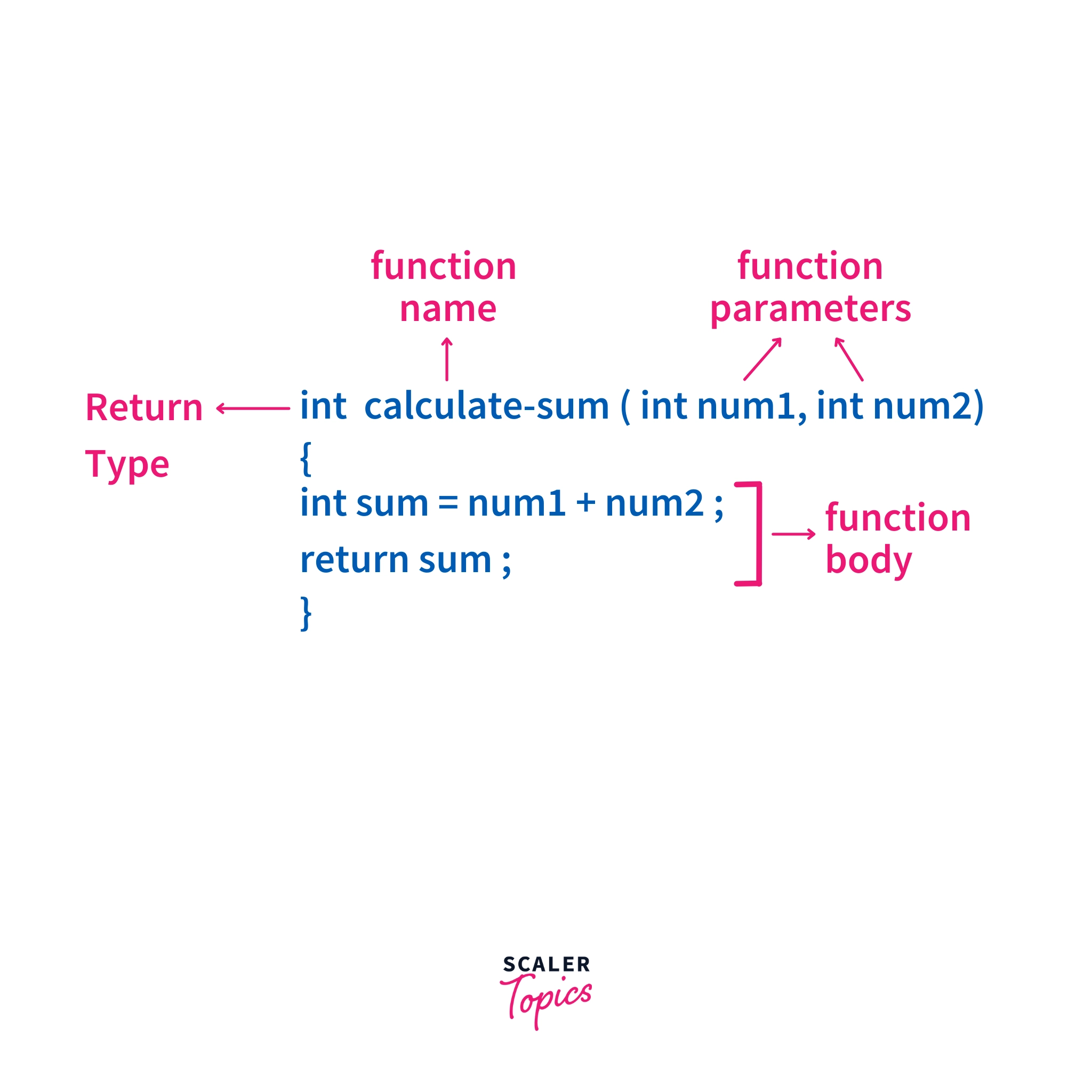Functions in C++
A function is a group of statements that perform a specific task, organized as a separate unit in a program. Functions help in breaking the code into smaller, manageable, and reusable blocks.
There are mainly two types of functions in C++:
Standard library functions: Pre-defined functions available in the C++ standard library, such as
printf(),scanf(),sqrt(), and many more. These functions are part of the standard library, so you need to include the appropriate header file to use them.User-defined functions: Functions created by the programmer to perform a specific task. To create a user-defined function, you need to define the function and call it in your code.
Defining a Function
The general format for defining a function in C++ is:
return_type function_name(parameter list) {
// function body
}return_type: Data type of the output produced by the function. It can bevoid, indicating that the function doesn’t return any value.function_name: Name given to the function, following C++ naming conventions.parameter list: List of input parameters/arguments that are needed to perform the task. It is optional, and when no parameters are needed, you can leave it blank or use the keywordvoid.
Example
#include <iostream>
using namespace std;
// Function to add two numbers
int addNumbers(int a, int b) {
int sum = a + b;
return sum;
}
int main() {
int num1 = 5, num2 = 10;
int result = addNumbers(num1, num2); // Calling the function
cout << "The sum is: " << result << endl;
return 0;
}In this example, the function addNumbers takes two integer parameters, a and b, and returns the sum of the numbers. We then call this function from the main() function and display the result.
Function Prototypes
In some cases, you might want to use a function before actually defining it. To do this, you need to declare a function prototype at the beginning of your code.
A function prototype is a declaration of the function without its body, and it informs the compiler about the function’s name, return type, and parameters.
#include <iostream>
using namespace std;
// Function prototype
int multiplyNumbers(int x, int y);
int main() {
int num1 = 3, num2 = 7;
int result = multiplyNumbers(num1, num2); // Calling the function
cout << "The product is: " << result << endl;
return 0;
}
// Function definition
int multiplyNumbers(int x, int y) {
int product = x * y;
return product;
}In this example, we use a function prototype for multiplyNumbers() before defining it. This way, we can call the function from the main() function even though it hasn’t been defined yet in the code.

0 comments:
Post a Comment